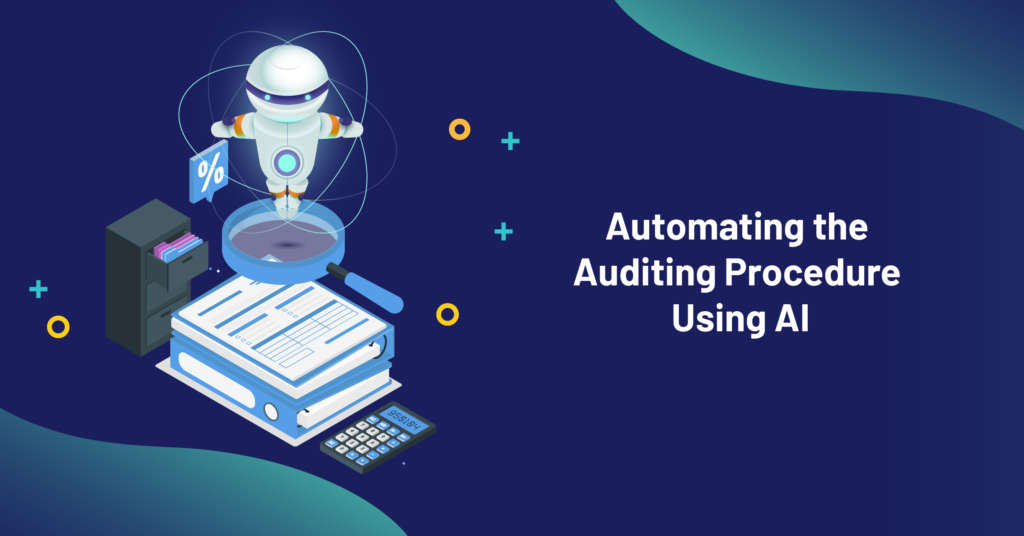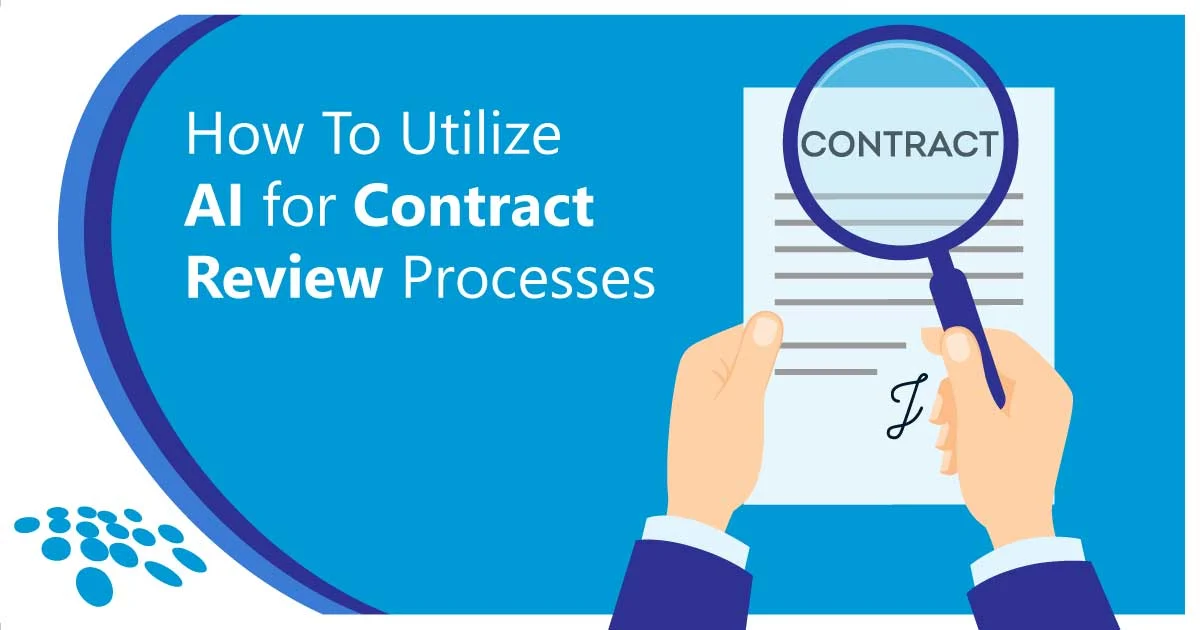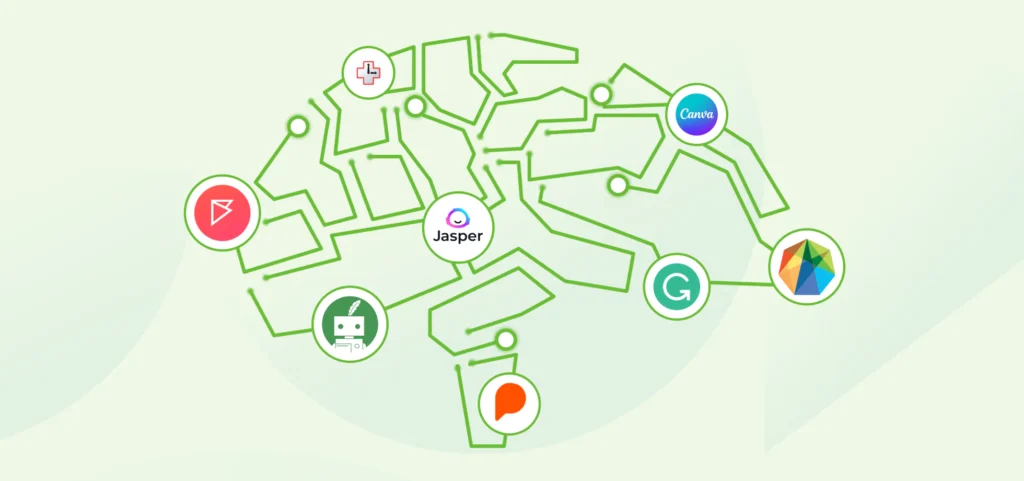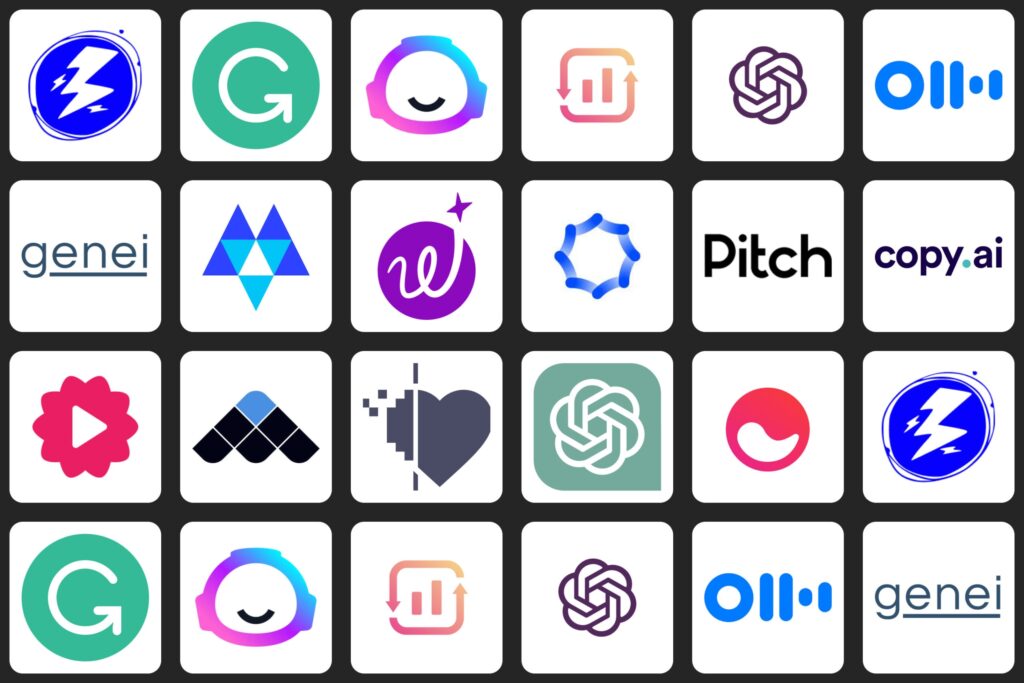Have you ever thought about how computers can help auditors do their job better?
Well, there’s a cool technology called artificial intelligence (AI) that makes it possible.
AI audit tools are like super-smart computer programs that can make auditing easier and more accurate.
Artificial Intelligence: Changing Auditing Forever
Artificial intelligence is a fancy term for computers that can think and learn like humans. It’s a big deal in many industries, including auditing.
AI audit tools are special computer programs that use AI to help auditors. They can quickly look at lots of information and find patterns and mistakes.
It’s almost like having a smart assistant that can predict what might happen in the future!
Let’s look at some of the important things AI audit tools can do:
- Automatic data checking: These tools can check a lot of information really fast. Auditors don’t have to spend a long time looking at numbers because the computer does it for them.
- Finding strange things: The tools are really good at finding patterns and mistakes in financial information. This helps auditors catch problems early and fix them.
- Guessing what might happen: AI audit tools can use information from the past to guess what might happen in the future. It’s like having a crystal ball that helps auditors make smarter decisions.
- Getting it right: By doing the boring work, AI audit tools can help auditors avoid making mistakes. This makes the results of the auditing more accurate.
What AI Audit Tools Can Do for Auditors
AI audit tools offer different ways to make auditors’ lives easier. They can do the boring tasks, like typing in data and checking it, so auditors can focus on more important things.
These tools are really good at quickly looking at lots of information, which helps auditors find problems early and fix them.
They also give auditors important information to make better decisions. For example, they can use information from the past to guess what might happen in the future.
They can also find patterns and mistakes in financial information that could be signs of cheating or errors.
How Does AI Affect Audit Procedures?
Now let’s see how AI changes the way audits are done. When auditors use AI tools, it makes the whole process better and faster. Here are some ways AI affects audits:
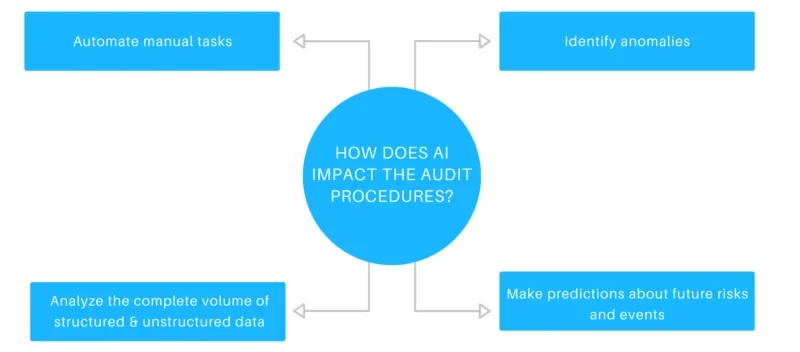
1. Finding Mistakes Faster and Better
In the past, auditors had to look through the general ledger by hand to find mistakes. But now, with AI tools, it’s easier and more accurate.
AI tools can quickly analyze a lot of financial information in the general ledger. They use special smart programs to find patterns or things that look strange. This helps auditors find mistakes that need to be fixed.
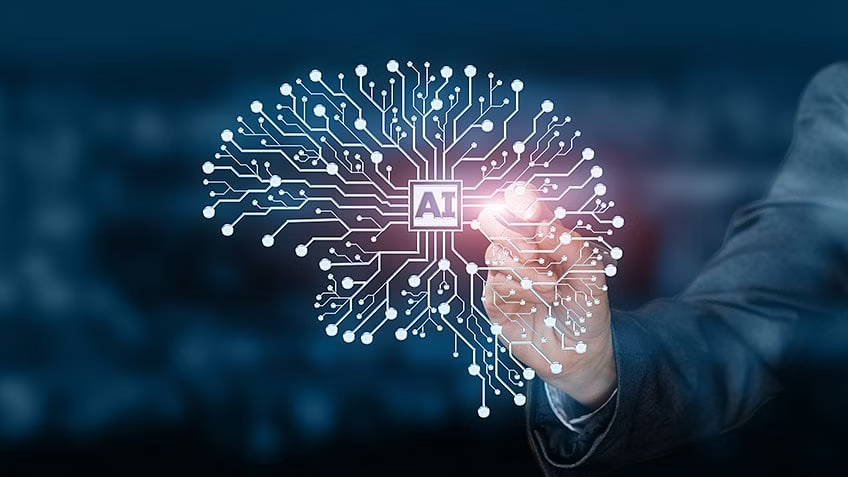
Main Features of AI Audit Tools for Finding Mistakes:
- Automatic checking: AI tools automatically look at the general ledger data, which saves time and effort for auditors.
- Finding strange things: These tools are good at finding patterns or things that don’t look right in the financial data. This helps auditors find mistakes that need fixing.
- Getting it right: By using AI tools, auditors can avoid making mistakes and get more accurate results.
- Quick investigation: AI tools give auditors helpful information to investigate and fix mistakes quickly.
By using AI audit tools, auditors can find mistakes in the general ledger more easily and make sure the financial records are correct.
2. Making Contract Review Easier
Looking through contracts can take a lot of time and attention to detail. But with AI tools, it becomes easier and faster.
AI tools like contract.ai can read contracts and understand what they say using special programs. They can find important information like who is involved, the terms and conditions, obligations, and important dates. They can also find any risks or problems in the contracts. This helps auditors focus on the important parts of the contracts and saves them time.
Main Features of AI Audit Tools for Contract Review:
- Automatic contract analysis: AI tools read and understand contracts, which saves time for auditors.
- Finding key information: These tools can find important details in contracts, like who is involved and what the obligations are.
- Spotting risks: AI audit tools can find any risks or problems in contracts, helping auditors pay attention to important areas.
- Making it accurate: By using AI tools, auditors reduce the chance of making mistakes when reviewing contracts.
With the help of AI audit tools, auditors can review contracts more easily, making sure everything is correct and following the rules.
3. Making Expense Audits Easier and Better
Normally, auditors have to look at receipts, invoices, and expense reports one by one. This can take a long time and mistakes can happen. But with AI tools, it’s easier and more accurate.
AI tools can automatically look at the expense data, check the receipts, and match them with the right transactions. They can find things that seem unusual or not following the rules and tell the auditors to take a closer look. This helps auditors save time and makes sure all the expenses are checked properly.
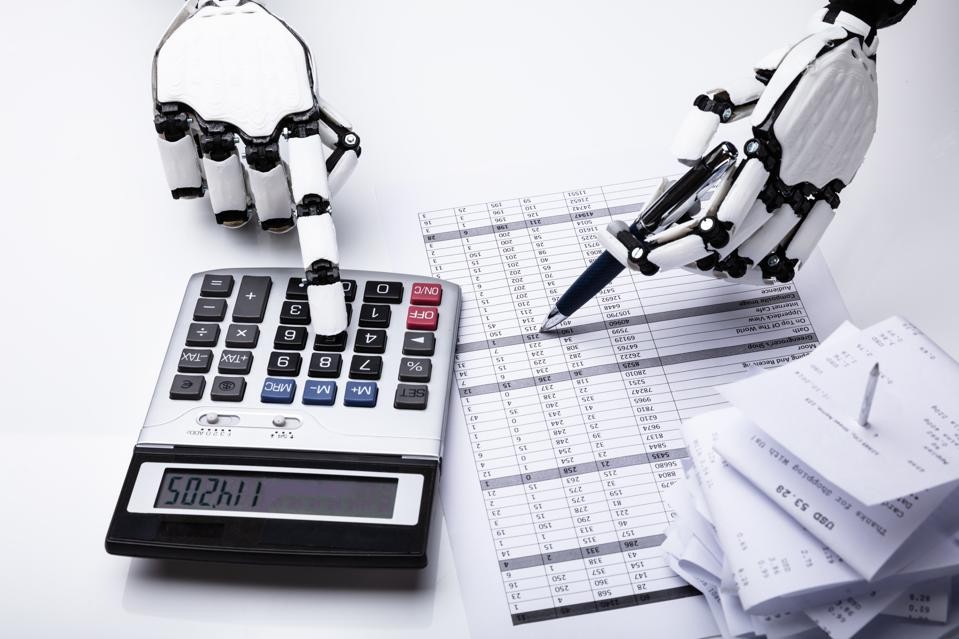
Main Features of AI Audit Tools for Expense Audits:
- Automatic data checking: AI tools automatically look at the expense data, which saves time for auditors.
- Checking receipts: These tools can verify the receipts and match them with the right expenses, making sure everything is accurate.
- Finding unusual things: AI audit tools can find things that don’t seem normal or follow the rules, so auditors can check them more closely.
- Working faster: By using AI tools, auditors can check expenses more quickly and focus on things that need attention.
With the help of AI audit tools, auditors can check expenses more easily, save time, and make sure everything follows the rules.
4. Making Businesses Better
AI audit tools have a wide range of applications in different businesses. They can do tasks automatically, look at lots of data, and give helpful information to auditors. Let’s look at a few areas where AI audit tools are commonly used:
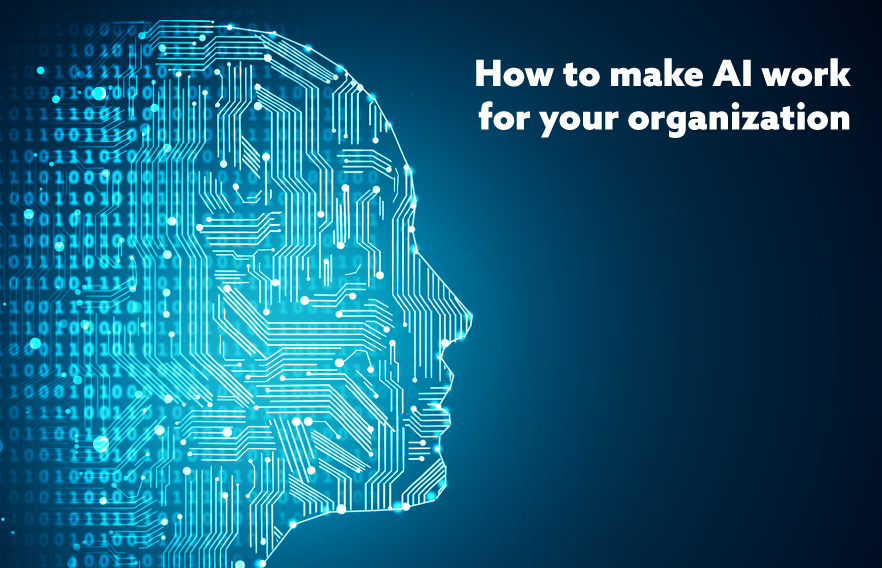
a) Healthcare Consulting
In the healthcare industry, AI audit tools help auditors check medical records, billing codes, and insurance claims. They can find mistakes, possible fraud, or errors in medical documents. This helps make sure the billing process is accurate and improves patient care.
b) Enhancing Healthcare Solutions
AI audit tools also help make healthcare solutions better. They can look at patient data, medical records, and treatment results. By doing this, they help auditors find ways to improve healthcare quality and make sure patients are safe.
c) Quality Assurance
In quality assurance, AI audit tools help auditors review manufacturing processes, product quality, and compliance with rules. They can find problems, see trends, and give advice on how to make things better and reduce risks.
d) Compliance Audits
AI audit tools help auditors make sure businesses follow the rules in different industries. They can look at lots of data and find things that are not following the rules. This helps make sure companies are doing the right things and following the law.
Main Features of AI Audit Tools in Enterprise Applications:
- Automation: AI audit tools do tasks automatically, which saves time and effort for auditors.
- Data analysis: These tools can look at lots of data, find patterns, see strange things, and help auditors understand what’s happening.
- Helpful information: AI audit tools give auditors important information to make good decisions and improve things.
- Finding risks: These tools can find mistakes, possible fraud, or things that don’t follow the rules, so auditors can fix them.
5. Making Healthcare Better
AI audit tools look at a lot of patient data, medical records, and treatment outcomes. They use special programs to find patterns and trends in the data. By doing this, they can help healthcare providers improve patient care and make sure patients are safe.
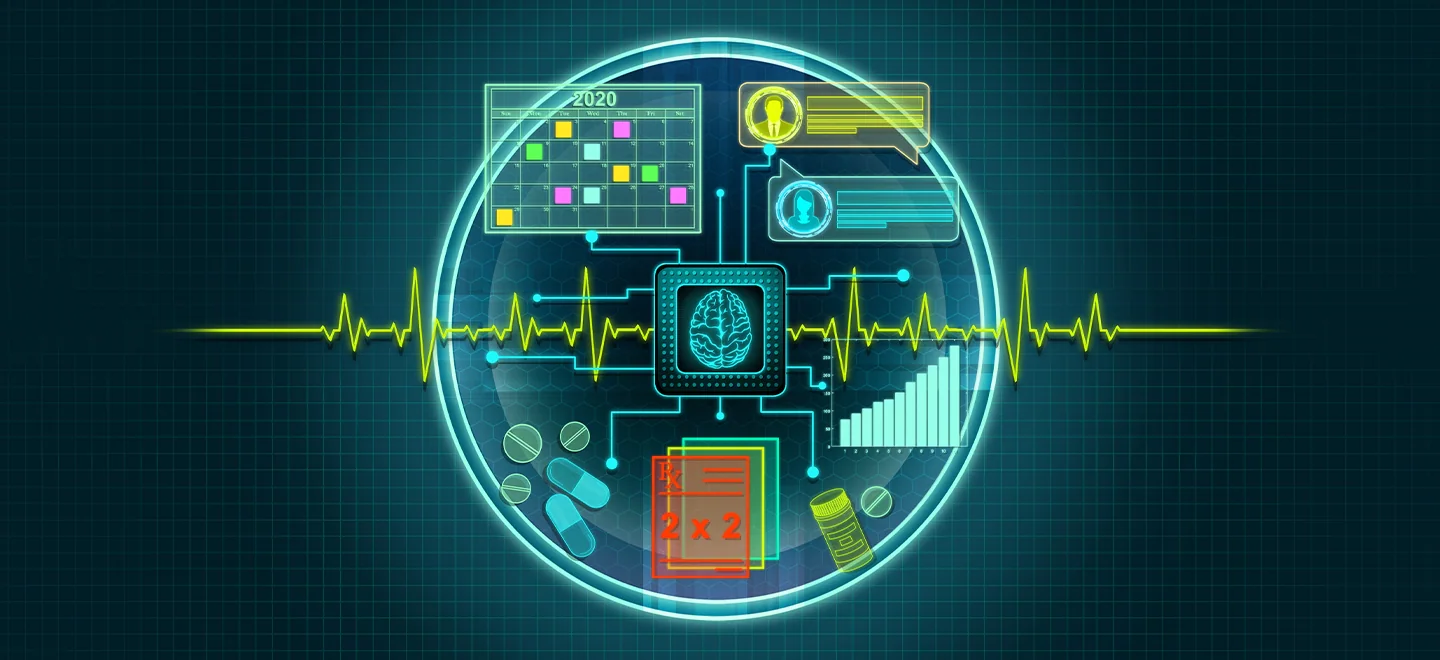
Main Features of AI Audit Tools for Healthcare Solutions Enhancement:
- Data analysis: AI audit tools look at patient data and medical records to find patterns and understand what’s happening.
- Predicting risks: These tools can predict risks or problems by using smart technology.
- Improving care: AI audit tools help healthcare providers give better care to patients and improve their health outcomes.
- Optimizing processes: By looking at data, AI tools find ways to make processes work better and be more efficient.
With the help of AI audit tools, healthcare providers can use data to make healthcare better, improve patient care, and optimize processes.
AI audit tools can be used in many different businesses to help auditors work better, find problems, and make things follow the rules.
6. Dedicated Quality Assurance
AI audit tools look at data from manufacturing processes and product quality. They use special programs to find things that might not be right. By doing this, they help auditors find and fix problems quickly. This makes products better and ensures they meet industry standards.

Main Features of AI Audit Tools for Dedicated Quality Assurance:
- Automatic analysis: AI audit tools look at manufacturing data and quality indicators automatically.
- Finding problems: These tools can find things that are not normal or don’t follow the rules, so auditors can fix them.
- Improving processes: AI audit tools give suggestions on how to make manufacturing processes work better and control quality.
- Following the rules: By checking compliance with standards, AI tools help auditors make sure companies meet industry requirements.
With the help of AI audit tools, dedicated quality assurance teams can find and fix problems, improve processes, and make sure everything follows the rules.
7. Compliance Audits
AI audit tools help auditors check if businesses are following the rules. They look at a lot of data and find things that might not be right. By doing this, they help auditors identify activities that don’t comply with the regulations. This ensures that businesses operate within legal boundaries.
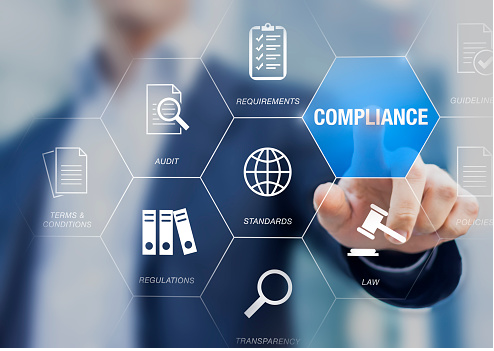
Main Features of AI Audit Tools for Compliance Audits:
- Automatic data analysis: AI audit tools automatically look at data to find activities that don’t follow the rules.
- Assessing risks: These tools evaluate the risks associated with non-compliance and help auditors focus on important areas.
- Monitoring compliance: AI tools make sure businesses follow the regulations and requirements.
- Efficiency and accuracy: By using AI tools, auditors can do compliance audits more efficiently and accurately.
With the help of AI audit tools, auditors can check if businesses follow the rules, reduce risks, and make sure they operate within legal boundaries.
Why Is AI Audit Tools Important Now?
Using AI audit tools has become really important nowadays, especially for auditors. There are a few reasons why these tools are so significant. Let’s take a closer look:
Dealing with Lots of Complex Data
In today’s world, companies have tons of data. It can be really hard for auditors to go through all of it manually and understand what’s going on. That’s where AI audit tools come in.
These tools are super smart. They can quickly process and understand a lot of data using special computer programs. This helps auditors find important patterns, things that don’t look right, or possible risks. It saves time and makes sure the audit results are delivered on time.
Main Features of AI Audit Tools for Dealing with Data Complexity and Volume:
- Handling big data: AI audit tools can handle large and complex data sets, which makes auditors’ job easier.
- Using smart technology: These tools use special computer programs to analyze data and find important patterns and risks.
- Working faster: By using AI tools, auditors can work more efficiently and deliver results quicker.
- Providing helpful insights: AI tools can give auditors important information and insights from the data, which helps businesses make better decisions
What Do You Think About AI Audit Tools?
You may have different opinions on these tools, and it’s interesting to understand their views. Here are a few viewpoints:
1. Seeing the Benefits of AI in Auditing
Many auditors believe that AI audit tools can bring a lot of benefits. They think these tools can make audits faster, more accurate, and more productive. By using AI tools, auditors can automate repetitive tasks and focus on important things like analyzing data and making smart decisions.
AI audit tools can also help auditors find important information in the data that might be hard to find otherwise. This helps auditors give useful advice and contribute to the success of businesses.
2. Addressing Concerns and Challenges
While people are excited about AI audit tools, there are some concerns too. One worry is that AI might replace human auditors and take away their jobs. But many believe that AI tools are meant to help auditors, not replace them completely. Auditors will still be important in making sure the results from AI tools are accurate and meaningful.
Another challenge is keeping data safe and private. With more automation and AI, it’s important to protect sensitive information. Auditors need to be careful and follow rules to make sure data is secure.
3. Working Together: Humans and AI
Most people agree that the best way forward is to have humans and AI work together. They think that AI can help auditors do their job better, but it can’t replace them completely. When humans and AI work together, auditors can be more efficient and accurate.
This collaboration means auditors can use their own judgment, thinking, and ethical considerations while taking advantage of the speed and analysis that AI tools offer. By working together, humans and AI can make audits better and bring more value to businesses.
Conclusion
To sum it up, AI audit tools are changing the way auditors work in different industries. These tools make things easier by doing tasks automatically and looking at a lot of data. They help auditors find mistakes, detect problems, and make sure businesses follow the rules.
Using AI audit tools, auditors can work better and be more efficient. They can focus on important areas, make smart decisions, and contribute to improving business practices.
As technology keeps advancing, AI audit tools will continue to make a big impact in the auditing field. Auditors need to learn about these tools and keep their skills up to date. By doing so, they can use AI audit tools to check financial records, internal controls, and make sure businesses follow the rules.
In conclusion, AI audit tools are changing how auditors work. They help auditors do their job better and make sure things are done right. By using AI, auditors can keep up with the changes in business and make sure everything is transparent and trustworthy.
Frequently Asked Questions
What are AI audit tools?
AI audit tools are special computer programs that help auditors with their work. They use smart technology to analyze data, find problems, and give helpful information to auditors. These tools make auditing tasks easier and more efficient.
How do AI audit tools improve audit procedures?
AI audit tools make auditing better in many ways. They can do tasks automatically, analyze lots of data, and find things that need attention. This helps auditors save time, be more accurate, and focus on important parts of the audit. They help auditors assess risks, find fraud, and make sure businesses follow the rules.
Do AI audit tools replace human auditors?
No, AI audit tools don't replace human auditors. They are designed to work together with auditors and help them do their job better. Human auditors have important skills like making judgments and decisions based on the information provided by AI tools.
Are AI audit tools safe for handling sensitive financial data?
Using AI audit tools for sensitive financial data requires proper security measures. Organizations using these tools should ensure data protection, access control, and compliance with privacy rules. Auditors should also follow best practices to keep the data safe and confidential.
Can AI audit tools be used in different industries?
Yes, AI audit tools can be used in different industries like finance, healthcare, and manufacturing. Although the specific uses may vary, the main ideas of automation, data analysis, and risk assessment apply to different industries.
